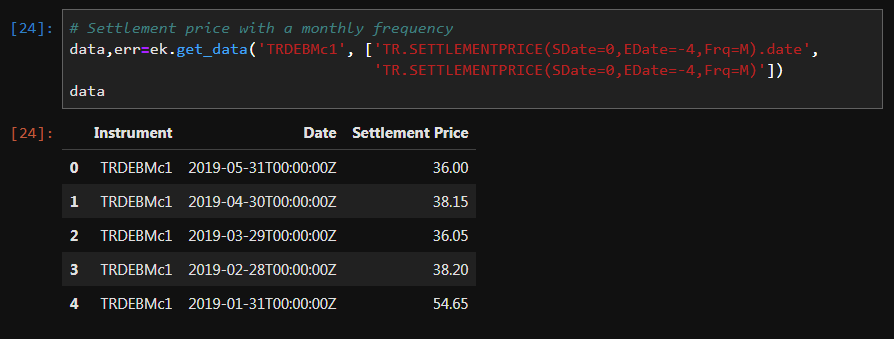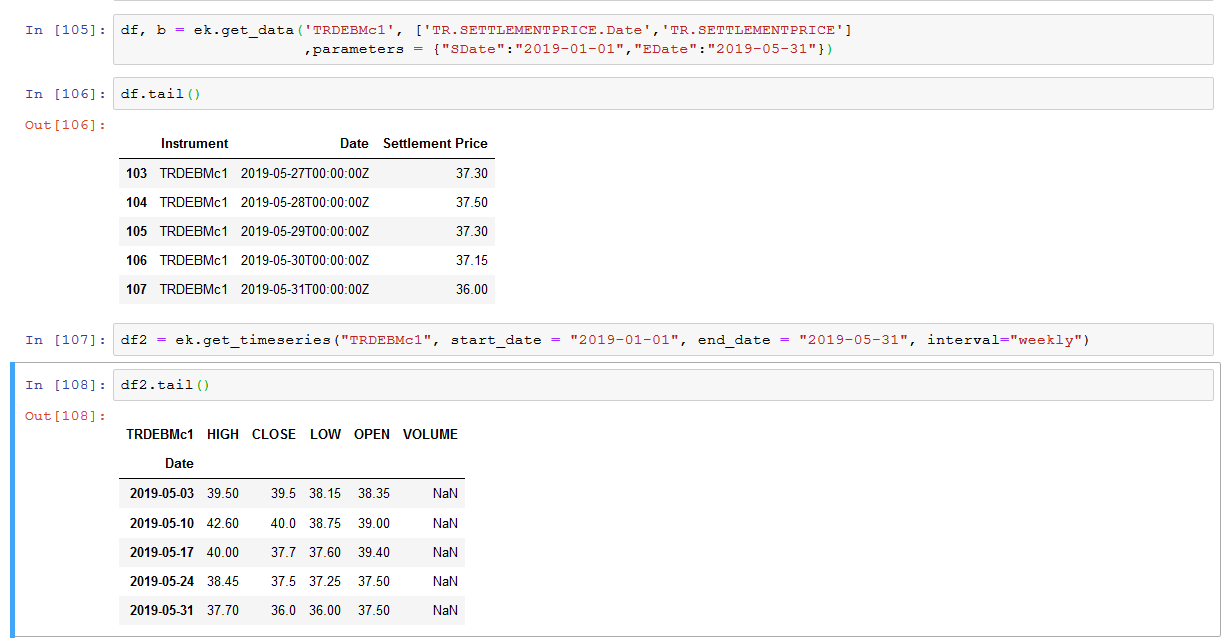When using the python package eikon, you can easily access OTC data (High, Close, low Open) for a given power future, e.g. TRDEBMc1 (TRPC Electricity Germany Baseload Monthly Continuation 1)
df = ek.get_timeseries('TRDEBMc1')
I would like to access settlement prices for futures and there is a way for single days described in this discussion
https://community.developers.refinitiv.com/answers/43498/view.html
df, b = ek.get_data('TRDEBMc1', 'TR.SETTLEMENTPRICE', parameters = {"SDate":"2019-05-30"})
But how can I easily access historic settlement prices for longer intervals similar to ek.get_timesieries?





